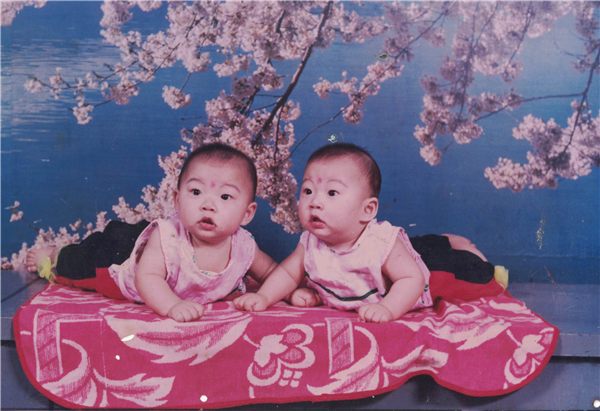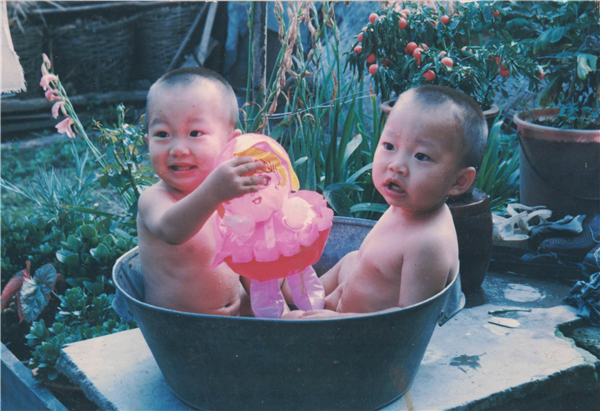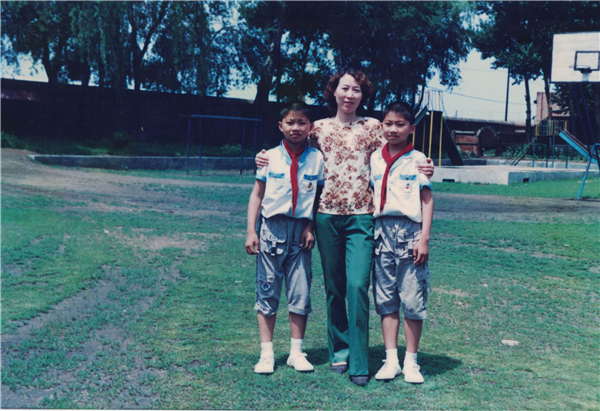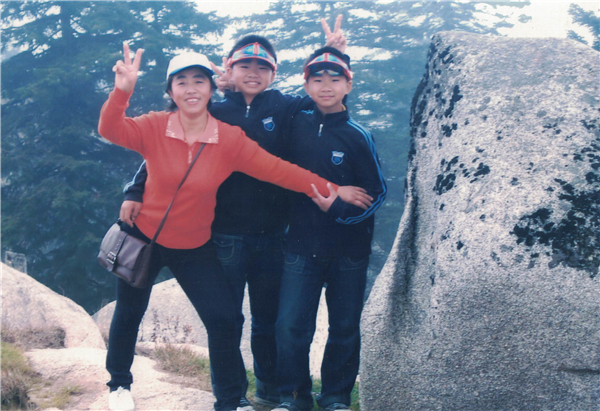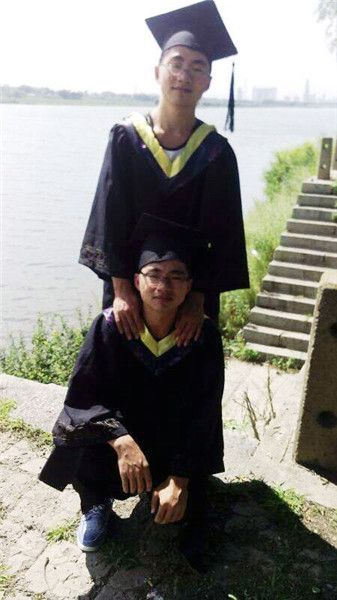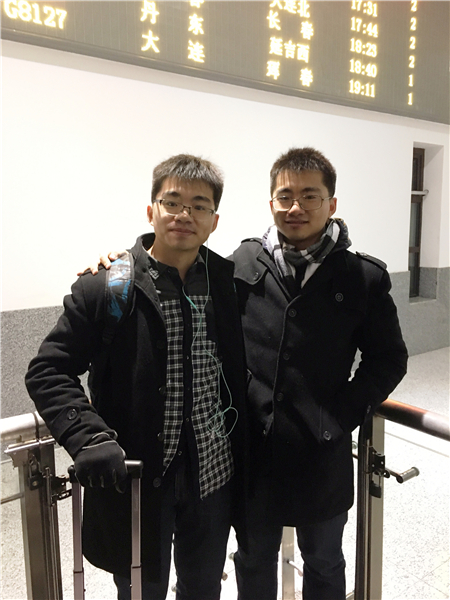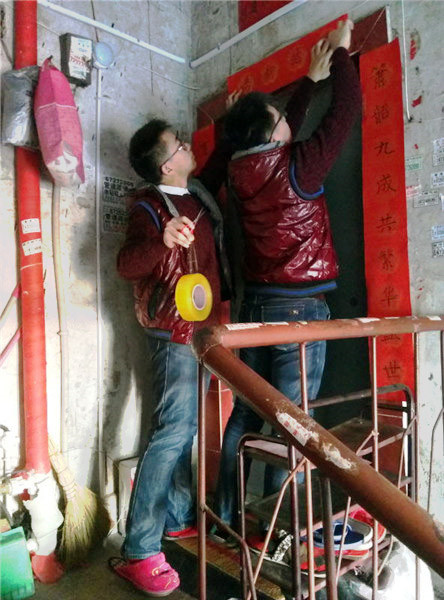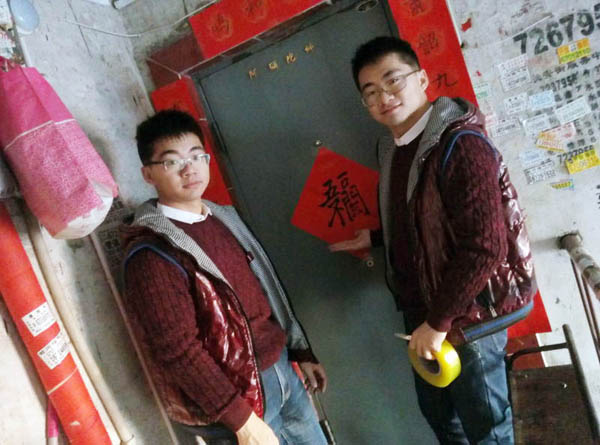Meet young science minds: Twin brothers' Spring Festival in Jilin
When the brush pen in his hand gently moved to the end of the last stroke of the Chinese character "Chun" meaning spring, the blue veins on his forehead became less visible and his jaw loosened a bit as a grin spread across his boyish and confident face.
Satisfied with his final stroke, he handed the complete work of Chinese calligraphy couplets to his elder twin brother – who had the same innocent but a bit shy look.
"Let my big brother, who came up with what the couplets should read, interpret it," said the younger one.
Pasting couplets on the door of one's home is one of the most important Chinese New Year customs in the country. For the 24-year-old twins from Jiaohe, a county-level city in Northeast China's Jilin province, making their own couplets instead of buying printed ones is a family tradition that has been maintained for six years.
The twin surnamed Zhang, whose given names are, respectively, Chao and Yue, together meaning "becoming outstanding" in Chinese, are fans of Chinese traditional culture; and, they both are postgraduates of Chinese Academy of Sciences (CAS).
"The couplets convey our best wishes both for motherland and our own family. On the one hand, they send a message that we appreciate the prosperity of today's China; and on the other hand, harmony within our family is praised as one character from each of my parents' names are respectively arranged in the left roll and right roll of the couplets," said the elder brother Zhang Chao.
The younger is always cheerful while the elder is more considerate, always ready to help his mother whenever she is with him.
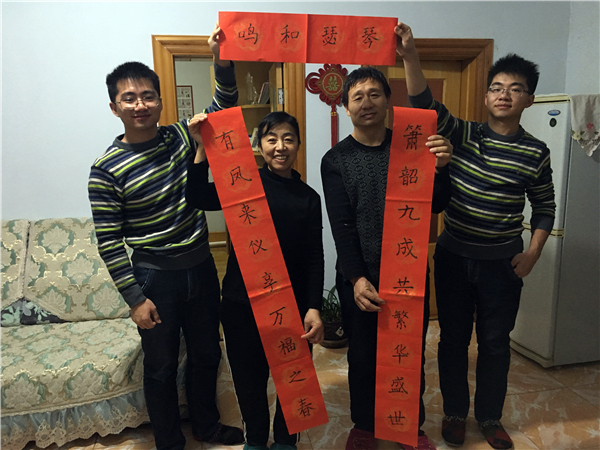
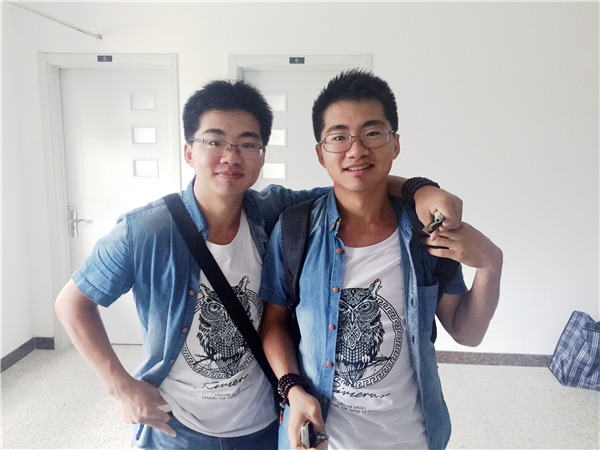
Bittersweet journey to science
Both of the twins were recommended for admission without an exam by CAS thanks to their outstanding academic performance in college. The elder Zhang Chao is now a social science fellow conducting research on innovation management under Guan Jiancheng, a top scholar on Elsevier's annual list of Most Cited Chinese Researchers.
Meanwhile, the younger Zhang Yue is researching on cutting-edge laser processing technology in a world-class lab of CAS.
Talented, promising and high achievers. But behind the gleaming façade is a moving tale: their today's sweet fruit of success is a result of years-long bitter struggle with poverty and family's health problems.
When they were born in 1993, their mother was working at a pharmaceutical factory and their father was a plumber, with both earning average income. It is hard to take care of one baby for a working mother, let alone twins.
What's more, no other family members could give a hand as their grandmas had passed away, and both grandpas were in bad physical condition.
"The toughest time was when my father broke his leg in 2002," said mother Yang Fengling.
Years of hardship and overwork took a toll on her own health. She has been battling neurasthenia since giving birth and underwent an operation on tumor in 2006 when the boys were in middle school.
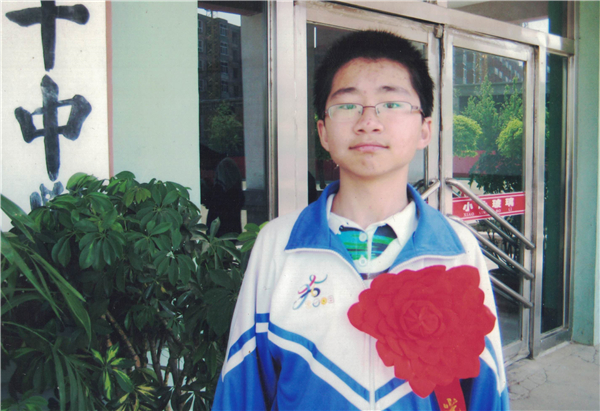
But all her struggles paid off when the twins excelled at schools. Both were admitted by the best high school in Jiaohe.
And then they received government-backed financial aid during high school years.
The twins did not realize their precarious financial situation until college as their parents always shielded them from poverty. In 2011, they enrolled at key universities in Beijing and Nanjing, each living on 3,000 yuan ($436) for an academic term of four or five months provided by parents. Average monthly living cost for college students in the two cities was about 1,000 to 1,500 yuan.
The monetary situation turned better for the family after they both got full scholarship at CAS for postgraduate studies in 2015. The family began to save money and repay debts accumulated due to the mother's illness and the father's unsuccessful business ventures.
When parents in China name their children, they generally choose some characters that carry certain auspicious connotations that reflect their own hopes.
For Chao's and Yue's mother, "becoming outstanding" is her hope for her sons, and they haven't let her down.
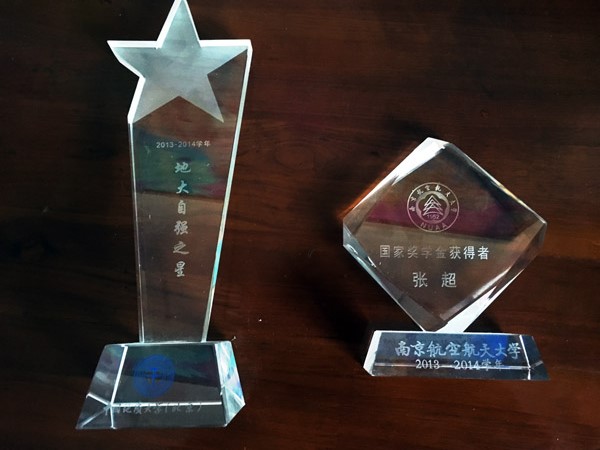
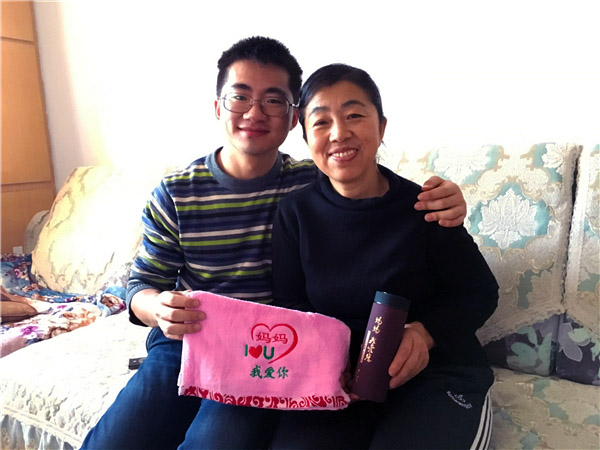
Scientific minds and romantic hearts
Scientific researchers are usually stereotyped as nerds with low EQ. In the case of the twin bothers, the stereotype couldn't be further from the truth.
Besides Chinese calligraphy and painting, they also like popular songs and American TV series. One of Yue's new year resolutions is to learn guitar and play one song for his girlfriend, and Chao hopes he can find his true love in this Lunar New Year.
Traditional values such as filial piety also mean a lot to the two scientific minds. Every year when they go back to hometown, they bring parents gifts like local food of Beijing and Nanjing, and sometimes even inexpensive jewelry for their mother.
What is even more rewarding than the awards on their bookshelves they received in college are two certificates "awarded" to their parents as "China's Best Mother and Best Father" by ... themselves.
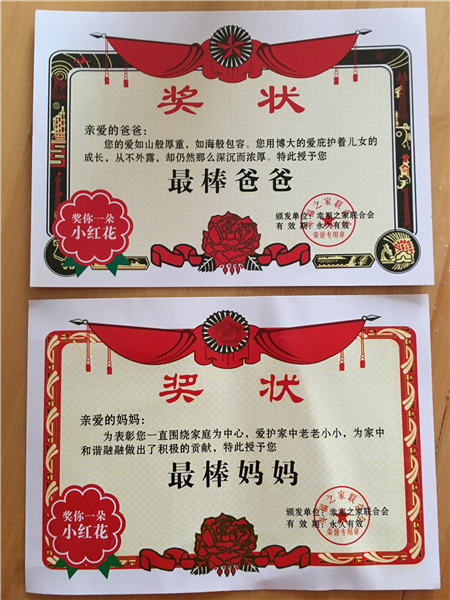
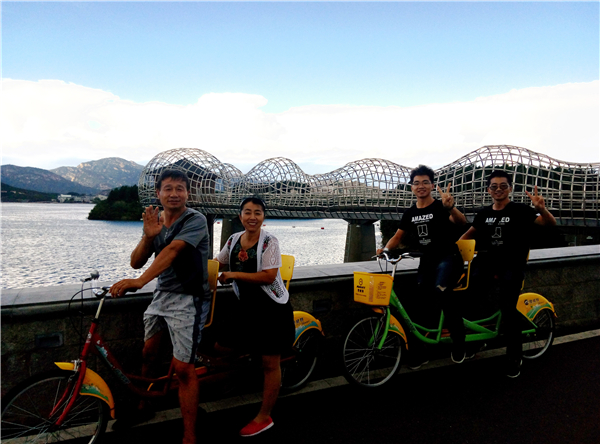
Bright dreams and brain drain
Before the holidays, they submitted their application for further studies at CAS for a doctorate degree. And they believe they have a great shot at the application process. Postdoctoral studies abroad are also in their plan.
They have decided to find a job in the same city after graduation because it would be easier to take care of parents.
Beijing and some second-tier cities are preferred. "We may not come back to Jilin to find a job. There are work opportunities for me, but not many for those with a major as is my elder brother," said Yue.
The achievements they have marked are rare, particularly in this northeastern small city with a population of just over 400,000. "This is the Chinese dream," their mother said, using a buzzword in China to show her pride in her twin sons.
But it's also true that they may not come back for good, something that's common.
Brain drain is a severe problem in the rust belt. It has lost more than 1 million people in the past decade, many of them high earners and well educated. In a guideline released on Jan 24, 2017, it was for the first time mentioned as a region the central government wants graduates to work in to rejuvenate the area.
"We have seen tremendous changes in our hometown. It is now connected with high-speed train network and public transportation is more convenient. I think reforms should be adopted to promote technological innovation, which may help attract talents," said Zhang Yue.
